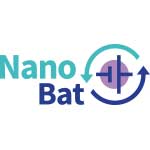Speakers

Amaia Zurutuza
She received her Ph.D. degree in polymer chemistry from the University of Strathclyde (Glasgow, UK) in 2002. From 2001 to 2003, she was a Postdoctoral Research Fellow working in molecularly imprinted polymers. In 2004, she joined Ferring Pharmaceuticals where she worked in the research of new controlled drug delivery systems as a Senior Polymer Scientist. In 2010, she became the Scientific Director of Graphenea. At Graphenea, she leads the research and development activities on graphene-based materials. Since joining Graphenea, she has so far filed for fifteen patents and published more than 82 publications in peer reviewed journals, including Nature and Science. Principal Investigator in 21 EU FP7/H2020 funded research projects, 16 collaborative projects including the Graphene Flagship and 3 people training network projects. In the Graphene Flagship, she is a member of the executive board and world package leader in the wafer scale integration (Graphene Flagship) and deputy leader in the wafer scale growth (Experimental Pilot Line) workpackages.
At the Challenges training school, she will talk about graphene production in industry and the importance of standarised characterization methods.

Delphine Le Cunff
Delphine Le Cunff received a Bachelor of Engineering in material sciences from the National Institute of Applied Science (INSA) at Rennes (France) in 1992. She continued with a Ph.D. degree in physics at University of Grenoble (France) in 1995. She started her carrier in semiconductor industry as an application engineer working for Therma-Wave a major optical metrology supplier from 1997 to 2006. She then joined STMicroelectronics in Crolles (France) where she held different technical and management positions in metrology area. She is now Senior Member of Technical Staff and is currently involved in innovation and development in the field metrology, process control and manufacturing sciences. Her activities cover applications from compound semiconductors to advanced technology nodes.

Ivan Gordon
Dr. Ivan Gordon is leading the Photovoltaic Technology and Energy Systems group of IMEC in Belgium. He is also part-time professor in Digital Photovoltaics at the Delft University of Technology in the Netherlands and Editor-in-Chief of Solar Energy Materials and Solar Cells (impact factor 7.3). Since January 2016, he is the coordinator of the joint program on Photovoltaics of the European Energy Research Alliance (EERA) and a steering committee member of the European Technology and Innovation Platform Photovoltaics (ETIP-PV). At the Challenges training school, professor Gordon will talk about the current status of the production process of crystalline silicon solar cells and modules and how nanotechnology can improve the energy conversion efficiency of photovoltaic devices.

Matthias Auf der Maur
Matthias Auf der Maur holds a PhD in Electronic Engineering from the University of Rome Tor Vergata. After his PhD he was a PostDoc with University of Rome Tor Vergata, where he was appointed as associate Professor in 2019. Since 2007 one of his main research topics has been the simulation of III-nitride devices, in particular AlGaN/GaN HEMTs and InGaN/GaN LEDs, studying strain, electronic transport, thermal effects, their coupling, and optical properties. He is since the main developer of the multiscale/multiphysics device simulation software tiberCAD. His current research activity is on optical and electrical modelling of nitride LEDs and solar cells and modelling of organic and perovskite based solar cells and detectors. In his lecture he will introduce basic concepts and examples of multiscale device simulation, coupling atomistic and continuum models.
Sergey S. Kharintsev
Department of Optics and Nanophotonics, Institute of Physics, Kazan Federal University, Kremlevskaya, 16, Kazan, 420008, Russia
In this paper, we report on a mechanism of light absorption in a silicon nanocone due to a gap plasmon excitation between its tip apex and a roughed gold film. The momentum of a near-field photon is comparable to that of an electron, and therefore, optical transitions with variable momentum can be considered as an alternative channel to capture light energy. This hypothesis is evidenced by direct measurement of temperature of the AFM tip apex with and without a TiN coating, oscillating over a glass substrate and a gold-coated glass substrate, exposed to focused cw illumination using pump-dependent Raman thermometry and an AFM phase detection technique.

Roy Pinhassi
Doctor Roy Pinhassi is the ElipsonTM Product Marketing Manager, leading the global penetration and adoption activities of Nova’s High-Volume Manufacturing (HVM) Raman Spectroscopy toolset.
Before joining Nova, Dr. Pinhassi held various technological roles with Applied Materials, first at the Scanning Electron Microscopy division and later with the CTO group. Dr. Pinhassi holds a Ph.D. from the Israel Technion’s Nanotechnology Program, where he specialized in electrochemistry for Renewable Energy applications, and published numerous papers in the prestigious Nature Communications, PLosOne and Biomacromolecules journals.

Lorenza Crabba | EU Funding Expert
Lorenza Carabba works within the European Funding Development Area of Warrant Hub S.p.A. as a European Funding Development Engineer. Lorenza holds a degree in Building Engineering and Architecture and a PhD in Chemical, Civil, Environmental, and Materials Engineering. She worked as a researcher at the University of Bologna and at BAM-German Federal Institute for materials research and testing. Since 2019 she has been working at Warrant Hub as EU funding Expert dealing with the drafting of project proposals, feasibility studies, and strategic orientation for client organizations; she is also involved in several Horizon 2020 and LIFE projects supporting consortia in the technical and scientific dissemination and exploitation activities.


Title: Nanoscale materials science and advanced battery tests for improved industrial manfuacturing in Gigafactories (NanoBat EU project)
Author: Ferry Kienberger, Keysight Labs Austria (NanoBat coordinator)
Abstract: The reliable electrical testing and diagnostic evaluation of battery cells is an important task in industrial automotive manufacturing, in battery quality control, and in battery recycling. In the first part we show different materials characterization and battery test methods, including advanced calibrations and error correction methods. Standard operating procedures (SOPs) are provided for electrochemical impedance spectroscopy, including metrological evaluation of accuracy and error sources. The new methods are currently evaluated in round-robin tests together with automotive manufacturers and national metrology institutes, also within the frame of the ongoing EU H2020 project ‘NanoBat’. Additionally, we show how the test data is used as input data to modeling algorithms to extract the equivalent electrical circuit parameters of the cell, relevant for evaluating the SoH (State of Health) and second life applications of batteries. Finally, we provide interoperable data formats for tests of energy materials and devices that interact with the larger scientific and industrial ecosystem, thereby providing robust industrial use cases for battery manufacturing Gigafactories.
Ferry Kienberger is Keysight Austria Country Manager and Keysight Labs Group leader on battery research since 2015. Prior to this he was Scientist at Agilent Technologies. His University education includes a PhD in 2002 on Technical Physics and the Habilitation in Nanotechnology in 2019, both at JKU Linz. The scientific track record includes 130+ scientific peer reviewed publications (including Nature Publishing Group, AAAS Science, PNAS USA, and IEEE Transactions) with an H-factor 41 and 5000+ citations; he supervised 10 PhD theses. He was coordinator and lead partner in 15+ EU projects for Keysight and Agilent, 7 national projects, 2 international projects (Economic Development Board EDB Singapore), and 3 metrology EU projects. He serves as a vice-chair for the Horizon Europe program and is a former member of OECD BIAC (Business and industry advisory council).
